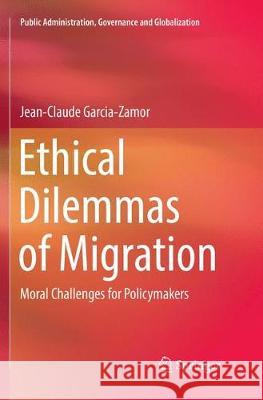Ethical Dilemmas of Migration: Moral Challenges for Policymakers » książka
topmenu
Ethical Dilemmas of Migration: Moral Challenges for Policymakers
ISBN-13: 9783030091477 / Angielski / Miękka / 2018 / 141 str.
Kategorie BISAC:
Wydawca:
Springer
Seria wydawnicza:
Język:
Angielski
ISBN-13:
9783030091477
Rok wydania:
2018
Dostępne języki:
Numer serii:
000402107
Ilość stron:
141
Waga:
0.23 kg
Wymiary:
23.62 x 23.62 x 0.76
Oprawa:
Miękka











